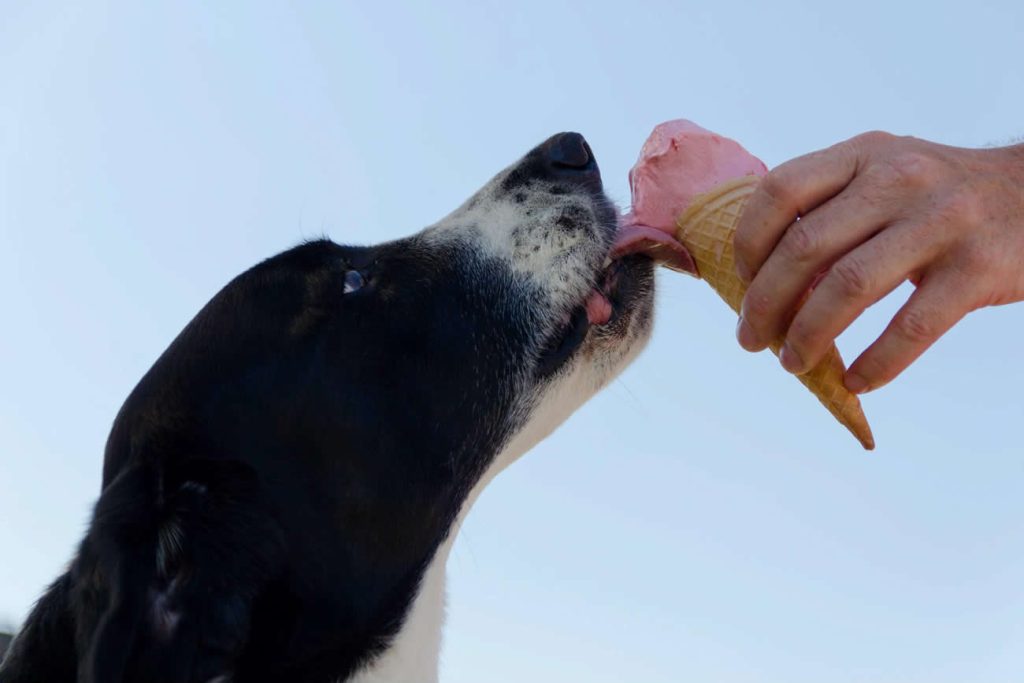As pet owners, we often find ourselves wondering what delicious treats we can share with our furry friends. One question that frequently arises is whether dogs can enjoy frozen strawberries.
The good news is that not only can dogs eat strawberries, but these vibrant berries can also offer several health benefits when served appropriately.
In this article, we will explore everything you need to know about feeding frozen strawberries to your dog, from preparation tips to potential health benefits and precautions.
Understanding Strawberries and Their Benefits for Dogs
Strawberries are not just a delightful treat for humans; they can also be a nutritious snack for our canine companions. These berries are rich in vitamins, minerals, and antioxidants, making them a healthy addition to your dog’s diet. Here are some key benefits of strawberries for dogs:
Nutritional Value
Strawberries are packed with essential nutrients, including:
- Vitamin C: Crucial for immune function and skin health.
- Fiber: Aids in digestion and helps maintain a healthy weight.
- Antioxidants: Protects cells from damage caused by free radicals.
Low-Calorie Treat
For those of us who are mindful of our dog’s weight, strawberries are a fantastic low-calorie option. They can serve as a sweet treat without contributing significantly to your dog’s daily caloric intake. However, moderation is key, as too many strawberries can lead to digestive upset.
Natural Teeth Whitener
Interestingly, strawberries contain malic acid, a natural enzyme that can help whiten your dog’s teeth. Including strawberries in their diet may contribute to better dental health, although they should not replace regular dental care.
Preparing Strawberries for Your Dog
Before treating your pup to strawberries, it’s essential to prepare them correctly to ensure their safety and enjoyment. Here’s how to do it:
Washing and Cleaning
Always wash strawberries thoroughly to remove dirt, pesticides, and any harmful chemicals. A good rinse under running water is usually sufficient. This step is crucial to ensure your dog’s health and safety.
Serving Size
When introducing strawberries to your dog’s diet, start with small portions. A few slices or a whole berry for larger breeds is a good starting point. For smaller dogs, consider cutting the strawberries into bite-sized pieces to prevent choking hazards.
Frozen vs. Fresh
Both fresh and frozen strawberries are safe for dogs. Frozen strawberries can be particularly refreshing during warm weather, making them an excellent choice for a cool treat. Just ensure that they are plain and free from added sugars or artificial sweeteners.
Moderation is Key
While strawberries are generally safe for dogs, it’s crucial to feed them in moderation. Treats, including strawberries, should not make up more than 10% of your dog’s daily caloric intake. Overindulgence can lead to digestive issues, such as diarrhoea or upset stomach.
Signs of Overindulgence
Be on the lookout for any signs of discomfort in your dog after feeding them strawberries. Symptoms may include:
- Vomiting
- Diarrhoea
- Excessive gas
- Lethargy
If you notice any of these symptoms, it may be best to discontinue feeding strawberries and consult your veterinarian.
Alternatives to Strawberries
If your dog enjoys strawberries, they might also appreciate other fruits that are safe for canine consumption. Some excellent alternatives include:
- Blueberries: High in antioxidants and low in calories.
- Raspberries: Low in sugar and rich in fibre.
- Watermelon: Hydrating and refreshing (just be sure to remove the seeds and rind).
- Apples: A good source of vitamins (remove seeds and core).
Potential Risks and Precautions
While strawberries are generally safe for dogs, there are a few precautions to consider:
Allergic Reactions
Just like humans, dogs can have allergies to certain foods. When introducing strawberries for the first time, monitor your dog for any signs of an allergic reaction, such as itching, swelling, or gastrointestinal upset. If you suspect an allergy, consult your veterinarian.
Avoid Canned or Syrup Strawberries
Never feed your dog strawberries that are canned or packaged in syrup. These products often contain added sugars and preservatives that can be harmful to dogs. Always opt for fresh or frozen strawberries without any additives.
Choking Hazards
As mentioned earlier, always cut strawberries into manageable pieces, especially for smaller breeds. Even though strawberries are soft, they can still pose a choking risk if not prepared properly.
Making Strawberry Treats for Dogs
If you’re feeling creative, there are various ways to incorporate strawberries into homemade dog treats. Here are a couple of simple recipes:
Strawberry and Banana Dog Treats
Ingredients:
- 1 cup of mashed strawberries
- 1 ripe banana
- 2 cups of whole wheat flour
- 1 egg
Instructions:
- Preheat your oven to 350°F (175°C).
- In a bowl, mash the banana and strawberries together.
- Add the egg and mix well.
- Gradually incorporate the flour until you achieve a dough-like consistency.
- Roll out the dough and cut it into shapes.
- Bake for 20-25 minutes or until golden brown.
Frozen Strawberry Dog Treats
Ingredients:
- 1 cup of strawberries
- 1 cup of plain yoghurt (unsweetened)
Instructions:
- Blend the strawberries and yoghurt until smooth.
- Pour the mixture into ice cube trays or silicone moulds.
- Freeze until solid and serve as a refreshing treat on hot days.
Our Final Say!
In summary, frozen strawberries can be a delightful and nutritious snack for your dog when prepared and served correctly. With their wealth of vitamins, antioxidants, and low-calorie content, strawberries can be a fantastic addition to your dog’s diet. Just remember to introduce them gradually, monitor for any adverse reactions, and always serve in moderation.
As you enjoy your strawberries this season, don’t forget to share a few with your furry friend. After all, nothing brings joy quite like the wagging tail of a happy dog enjoying a tasty treat!









